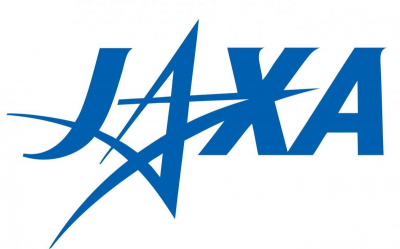Sakigake (, lit.'pioneer', 'pathfinder'), known before launch as MS-T5, was Japan's first interplanetary spacecraft, and the first deep space probe to be launched by any country other than the USA or the Soviet Union. It aimed to demonstrate the performance of the new launch vehicle, test its ability to escape from Earth gravity, and observe the interplanetary medium and magnetic field. Sakigake was also supposed to act as a frame of reference for data received from probes that flew closer to Halley's Comet. Early measurements would be used to improve the mission of the Suisei probe launched several months later.
Sakigake was developed by the Institute of Space and Astronautical Science for the National Space Development Agency (both of which are now part of the Japanese Aerospace Exploration Agency, or JAXA). It became a part of the Halley Armada together with Suisei, the Soviet/French Vega probes, the ESA Giotto and the NASA International Cometary Explorer, to explore Halley's Comet during its 1986 sojourn through the inner Solar System.
The Japan Aerospace Exploration Agency (JAXA) (国立研究開発法人宇宙航空研究開発機構, Kokuritsu-kenkyū-kaihatsu-hōjin Uchū Kōkū Kenkyū Kaihatsu Kikō, literally "National Research and Development Agency on Aerospace Research and Development") is the Japanese national aerospace and space agency. Through the merger of three previously independent organizations, JAXA was formed on 1 October 2003. JAXA is responsible for research, technology development and launch of satellites into orbit, and is involved in many more advanced missions such as asteroid exploration and possible human exploration of the Moon. Its motto is One JAXA and its corporate slogan is Explore to Realize (formerly Reaching for the skies, exploring space).

1985Jan, 7
Japan Aerospace Exploration Agency launches Sakigake, Japan's first interplanetary spacecraft and the first deep space probe to be launched by any country other than the United States or the Soviet Union.
Choose Another Date
Events on 1985
- 10Jan
Daniel Ortega
Sandinista Daniel Ortega becomes president of Nicaragua and vows to continue the transformation to socialism and alliance with the Soviet Union and Cuba; American policy continues to support the Contras in their revolt against the Nicaraguan government. - 13May
Philadelphia
Police release a bomb on MOVE headquarters in Philadelphia to end a stand-off, killing six adults and five children, and destroying the homes of 250 city residents. - 25May
Tropical cyclone
Bangladesh is hit by a tropical cyclone and storm surge, which kills approximately 10,000 people. - 6Jun
Auschwitz concentration camp
The grave of "Wolfgang Gerhard" is opened in Embu, Brazil; the exhumed remains are later proven to be those of Josef Mengele, Auschwitz's "Angel of Death"; Mengele is thought to have drowned while swimming in February 1979. - 13Sep
Super Mario
Super Mario Bros. is released in Japan for the NES, which starts the Super Mario series of platforming games.

 English
English  español
español  français
français  português
português  русский
русский  العربية
العربية  简体中文
简体中文 